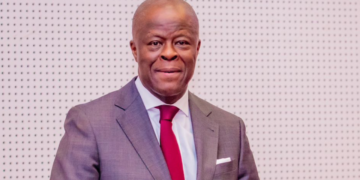Traditional fishermen in Bayelsa State have expressed concerns about the challenges they face in their livelihood, citing oil pollution, incursion by industrial fishing trawlers, and harmful fishing practices as major obstacles.
During a capacity-building workshop organized by the Health of Mother Earth Foundation (HOMEF), fishermen voiced their frustrations during a brainstorming session led by Dr. Ogechi Cookey, HOMEF’s Research and Publications Lead. They attributed the declining fish production in the Niger Delta region to these factors.
Fishermen highlighted how industrial trawlers, despite legal restrictions on their proximity to the coastline, encroach on their fishing grounds, employing “sweep fishing” techniques that overfish and deplete young fish populations crucial for replenishing fish stocks.
Another worrying practice involves the use of local leaves mixed with chemicals by some fishermen to enhance their catch, which ultimately harms the delicate balance of the food chain.
Chief Washington Odoyibo, a fisherman, farmer, and community leader from Ikarama, condemned the detrimental impact of oil exploration and associated spills on their lives. He lamented the loss of fish species and the contamination of waters due to oil spills, rendering them unsafe for fishing.
Odoyibo further criticized the use of booms during oil spill cleanup, stating that they often remain abandoned, obstructing navigation and posing further environmental threats.
Mrs. Ayibakuro Warder, another community leader from Ikarama, raised concerns about the health consequences of oil pollution. She stated that prolonged exposure to crude and its toxic fumes has increased the prevalence of asthma and other respiratory illnesses, particularly among women who spend more time in affected areas.
Warder further highlighted the findings of a Bayelsa Oil and Environmental Commission report, which revealed higher-than-normal levels of heavy metals in breast milk and a higher rate of miscarriages among women of reproductive age in oil-impacted communities.
“The frequent spills in Ikarama have led to diagnosis of many new and strange ailments previously not common, and women are worst hit because they stay longer in the farms and get exposed to crude.
“The report by Bayelsa Oil and Environmental Commission found higher than normal levels of heavy metals in the breast milk of breastfeeding mothers.
“High rate of miscarriages amongst women of reproductive age in oil communities was also reported by the study,” Warder said.
Chief Alagoa Morris, a renowned environmentalist and Technical Adviser on Environment to the Bayelsa Governor, commended HOMEF for empowering fishermen to advocate for their environmental and human rights. He urged them to actively participate in policy discussions to ensure their voices are heard and addressed.
Dr. Piriye Kiyaramo, the Senior Special Adviser on Tourism to the Bayelsa Governor, emphasized the connection between fishing and tourism. He noted the increasing interest among tourists to accompany fishermen on expeditions, seeking a deeper understanding of local fishing practices and culinary traditions.
Kiyaramo also revealed the proposed establishment of a State Ministry of Blue Economy in Bayelsa, which would specifically address the challenges faced by fishermen and promote the sustainable development of the blue economy.
The workshop organized by HOMEF demonstrates the commitment to supporting traditional fishermen and addressing the issues that threaten their livelihoods and the health of the environment. By raising their voices and engaging in open dialogue with policymakers, Bayelsa fishermen can hope for a more sustainable future for their communities and the vital fishing industry.
NAN




